
English, Portuguese, and Spanish Africa (EPSA) March 2025 Field Report
March 28, 2025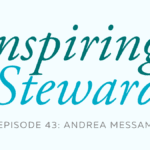
Andrea Messam – Putting her giftedness to work in her church, corporation, and community for Christ
March 28, 2025From Serving as a Management Consultant to Strengthening Nonprofits with Standards and Service
After obtaining my master’s degree in Germany, I returned to India and served as an internal auditor, human resources officer, and ethics specialist in the corporate world. In those roles, I desired to apply my Christian faith in the Indian business community.
In 2019, I learned about GTP. I appreciated its dedication to enhancing accountability among Indian nonprofits demonstrated by onsite seminars providing helpful instruction and practical tools for board members, nonprofit workers, accountants, lawyers, and other professionals.
In 2023, I decided to change my path. As a competent manager, I determined that I could help a corporation achieve its business goals, but I wanted to do more for God and His kingdom. So, I moved back to New Delhi to work alongside my father, a certified public accountant, and also started my own consulting company.
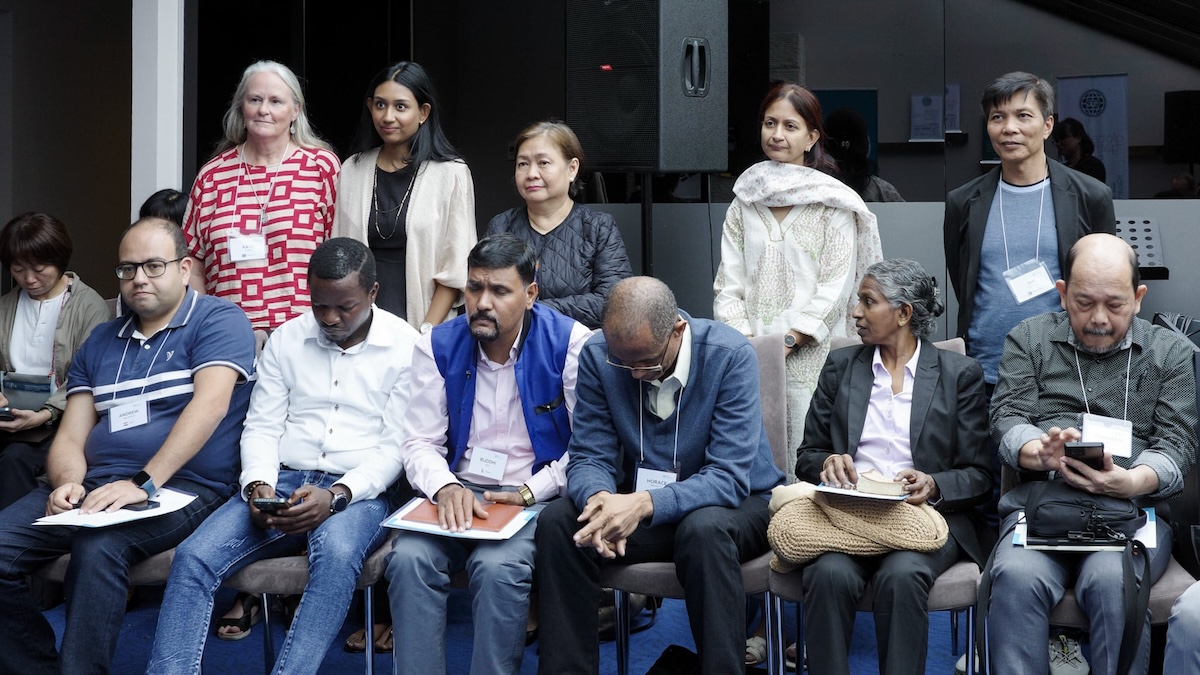
Rebecca observing the Commissioning Ceremony at the GTP Global Gathering in Istanbul, Turkey, October 2024
At this time, I also renewed contact with GTP, attending several trainings including the GTP Global Gathering 2024 in Istanbul, Turkey. There, I grew to understand GTP more deeply as I met the staff, board members, and key volunteers, and learned how they collaborate globally.
Until then, I had only been on the receiving side of communications. While participating in that event, I discovered that I shared the same values as GTP. I felt so moved that I approached Gary Hoag, GTP President & CEO, saying, “I don’t know how, but I want to serve with GTP.”
Gary mirrored my enthusiasm. We agreed to commit this desire to the Lord in prayer. God worked fast. Only six weeks later, NobleRank, the peer accountability group accrediting nonprofits to standards in India, invited me to serve as a volunteer in the role of Growth Strategist to help get their work going.
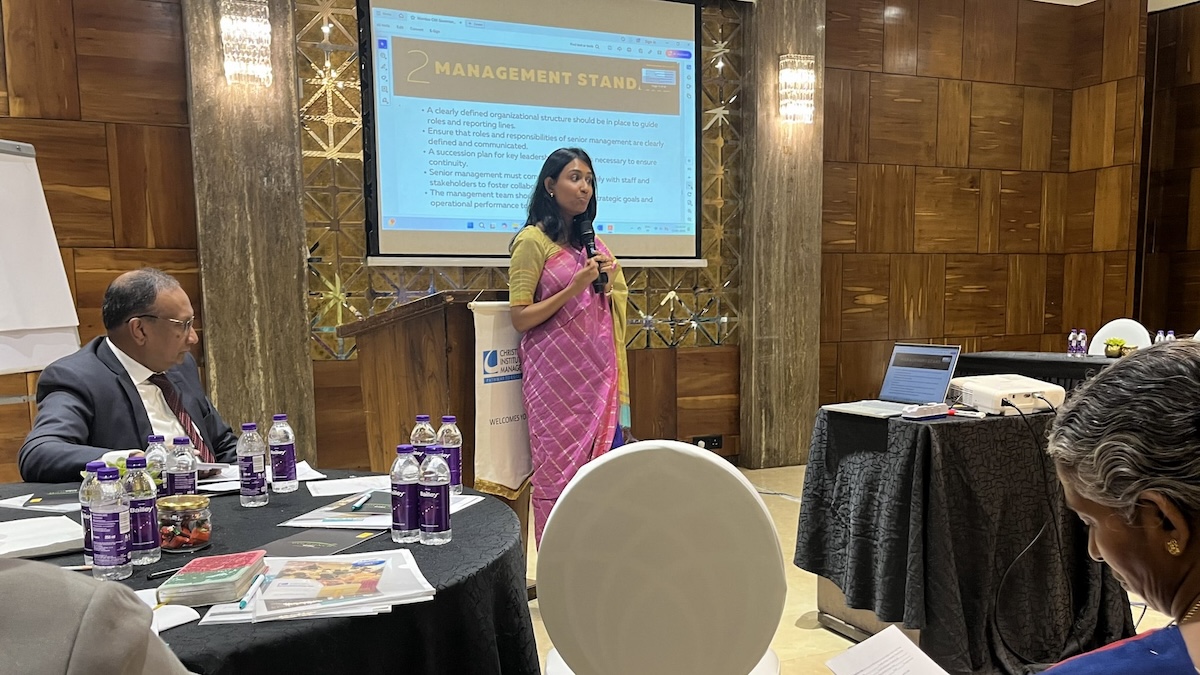
Rebecca speaking about the NobleRank Standards at a governance workshop in Mumbai, January 2025
After accepting the role with NobleRank in December 2024, Gary invited me to serve as GTP Regional Facilitator for South Asia. That was the answer to my prayer! I cannot describe with words how thankful I am for the opportunity. Already in January 2025, Gary and I spoke at conferences in India and Bangladesh, where I shared about standards and accreditation.
NobleRank offers a basic level of accreditation and celebrates the certification of 30 nonprofits since its incorporation in September 2024. In the future, NobleRank hopes to expand accreditation for nonprofits in India based on the ECFA model that serves churches and ministries in the USA.
Just recently, we launched a pilot project with 25 members of the India Mission Association (IMA). As IMA serves 317 mission agencies, 60,000+ missionaries, and 300,000+ national workers, we hope our service can increase their reach and effectiveness. Time will tell.
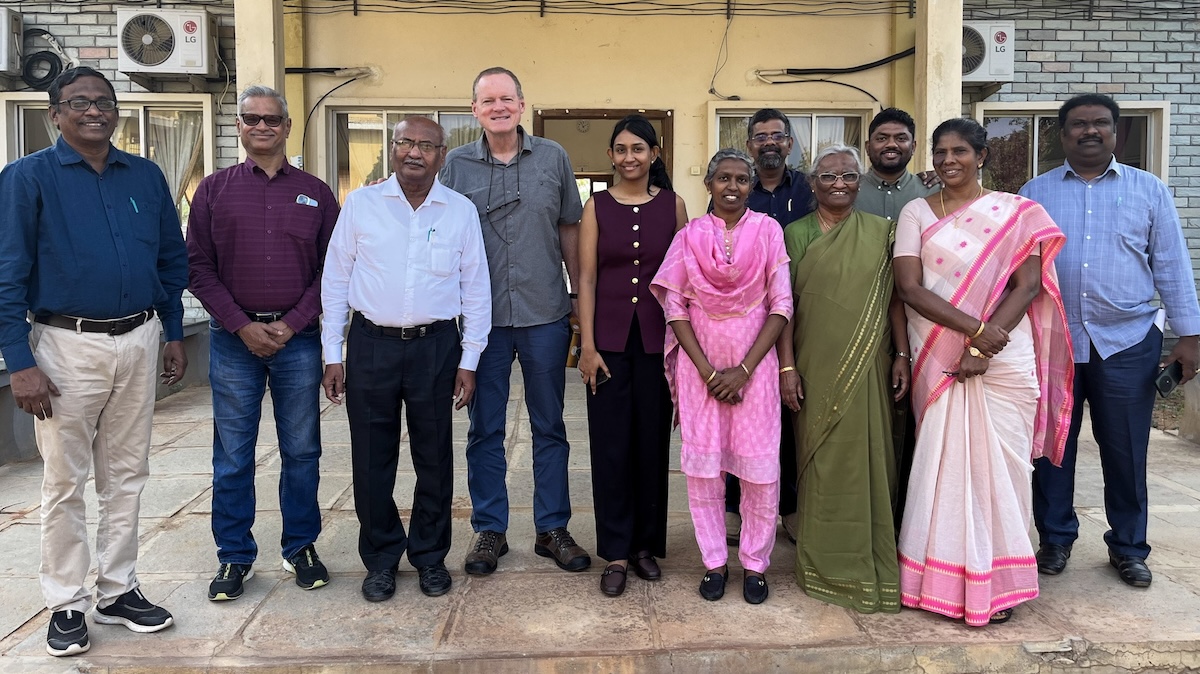
NobleRank and GTP met with IMA to discuss ways to help strengthen IMA agencies with standards in Hyderabad, January 2025
So far, I see impact in two areas. First, our service promotes internal awareness. Often, people caught up in running a nonprofit do not pause to step back and assess whether their actions align with their policies, or if their practices reflect compliance to laws relative to their sector.
NobleRank has five standards that help nonprofits put their house in order in the areas of governance, management, operations, finance, and compliance. When administrators go through our review process, they get a clear picture of current strengths and areas needing improvement.
Second, our service positions nonprofits for sustainability. The stewards we serve come to understand the significant connection between accountability—as an important verification of getting their house in order—and the sustainability of their purpose and vision.
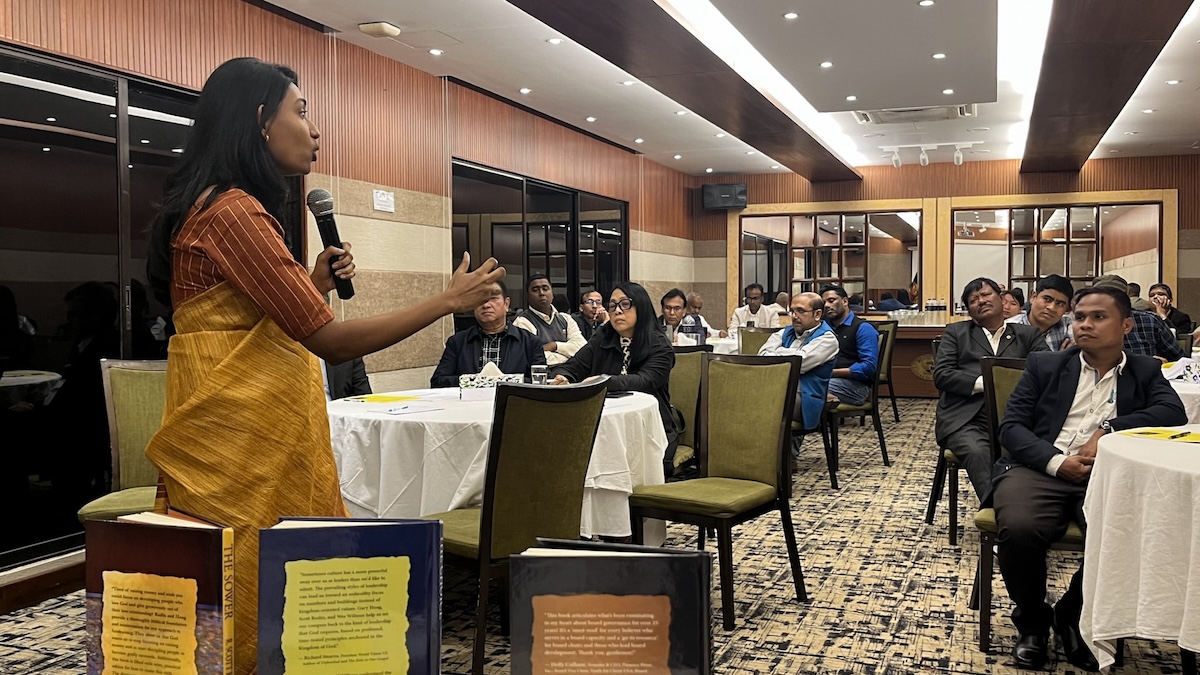
Rebecca speaking on the value of NobleRank standards with professionals in Dhaka, Bangladesh, January 2025
Historically, nonprofits in India have depended on major grants from both international funders and Indian individuals and institutions to operate. They have tended to do just enough, in terms of accountability and compliance, to secure those grants.
Today, the situation has changed. In part due to poor stewardship in the sector in India in the past, many nonprofits cannot receive outside funds. That has also led generous individuals or institutions in India to look for an endorsement from an independent body like NobleRank to give them confidence to give.
With standards and service, we help nonprofits demonstrate accountability. This positions givers to respond with generosity. And it gives the nonprofits we accredit a clear vision for local sustainability. At NobleRank, we find joy in facilitating the growth of trust and giving!
When we hold conferences, we describe the biblical basis for responsible nonprofit governance. I felt pleasantly surprised recently when a secular nonprofit in the youth development sector approached us, seeking Noble Rank accreditation to help them build trust and pursue grants.
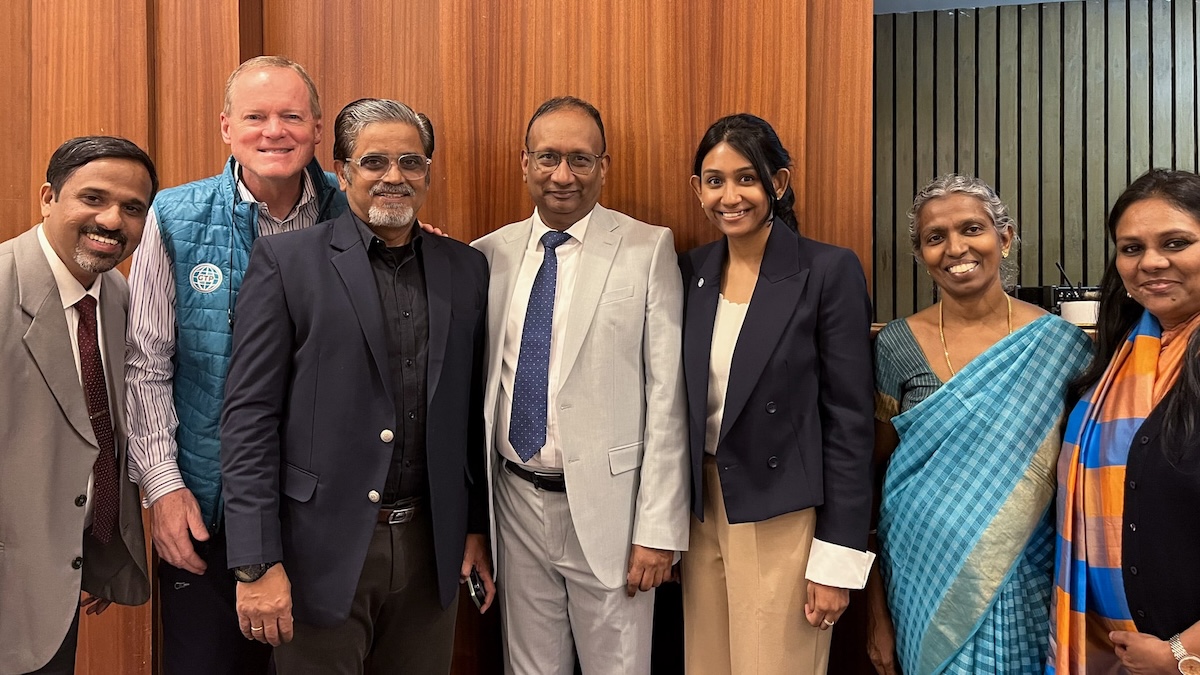
Rebecca with NobleRank and GTP colleagues after a nonprofit governance workshop hosted by CIM (Christian Institute for Management) in New Delhi, January 2015
Our interaction with this secular nonprofit showed us that our services fill a real need, and our standards make sense for all nonprofits. They also expressed appreciation for our responsiveness and positive approach. As a result, they have started sending us additional referrals.
With similar enthusiasm, an administrator from EFICOR (Evangelical Fellowship of India Commission on Relief) sent this endorsement: “We strongly encourage more stewards to seek accreditation from NobleRank for their nonprofit entities and societies. It strengthens systems and promotes best practices in governance, management, operations, finance, and compliance.”
In general, I can report that Indian nonprofits stack up strong in finance and compliance areas but have room for improvement related to the governance, operations, and management standards. This commonly reflects the situation at small and family-operated ministries.
Frequently, ministries lack independent boards or documented policies, and their administrative teams do not have adequate SOPs (Standard Operating Procedures) or compliance processes in writing. I say this not to disparage their operations but to share practical ways that our services brings order and oversight and helps them enhance trust and credibility in real and tangible ways.




